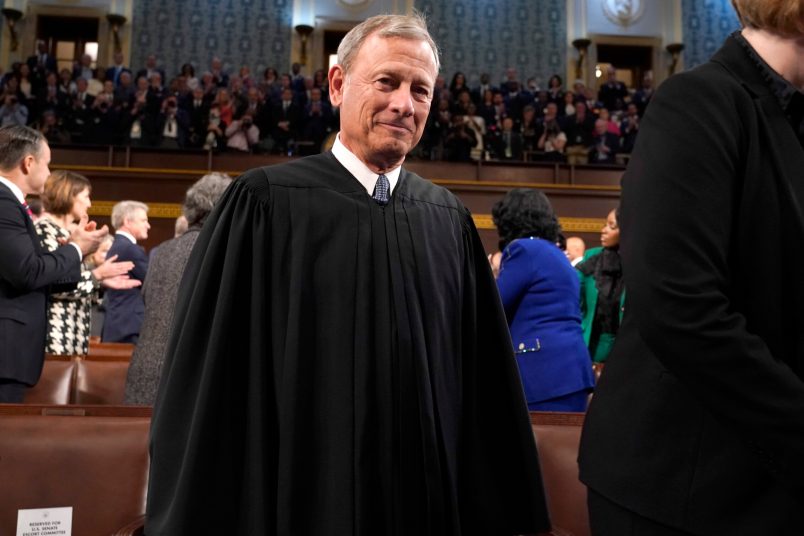The Supreme Court rejected the independent state legislature theory in a bombshell decision Tuesday, turning back a right-wing attempt to vest the sole power in administering federal elections with state legislatures.
“The Elections Clause does not vest exclusive and independent authority in state legislatures to set the rules regarding federal elections,” Chief Justice John Roberts writes for the majority.
Roberts was joined by Justices Sonia Sotomayor, Elena Kagan, Brett Kavanaugh, Amy Coney Barrett and Ketanji Brown Jackson. Kavanaugh also wrote in concurrence. Justice Clarence Thomas dissented, joined by Justices Neil Gorsuch in full and Samuel Alito in part.
Experts have long feared the outcome of this case, worrying that the right-wing Court would embrace the theory, opening the door to the kind of post-election chaos Donald Trump unleashed in his attempt to overturn the 2020 election. If all the power was granted to state legislatures, similar gambits in 2024 would have a much higher chance of success for Trump or others who reflexively respond to losses with lies about election fraud.
“State courts retain the authority to apply state constitutional restraints when legislatures act under the power conferred upon them by the Elections Clause,” Roberts writes. “But federal courts must not abandon their own duty to exercise judicial review,” he adds, perhaps tossing a bone to the conservative justices who expressed concern at oral arguments that federal courts would be elbowed out of election adjudication altogether.
Kavanaugh spends his brief concurrence emphasizing the same point, that federal courts still have a role to play in cases stemming from election disputes.
Thomas’ dissent is in part based on his opinion that the underlying case is moot, meaning that there’s no live controversy for the Court to decide. Many experts expressed the same opinion to TPM, after the North Carolina Supreme Court — newly heavily right-wing after the midterms — overturned its own one-year-old opinion knocking down state maps.
Thomas also dips a toe into the merits, joined only by Gorsuch in that part of his dissent. He warns of federal court dockets swollen with election litigation as the courts impose themselves in state disputes.
“They will arise haphazardly, in the midst of quickly evolving, politically charged controversies, and the winners of federal elections may be decided by a federal court’s expedited judgment that a state court exceeded ‘the bounds of ordinary judicial review’ in construing the state constitution,” he writes.
Read the opinion here:







We always know how Thomas votes.
I’ll admit to being nervous about this one.
Also, the cat is somewhere else.
Wow. Surely the Court has not forgotten the billionaires who pay them??
And Sammy the Salmon Slayer.
AKA Alito…